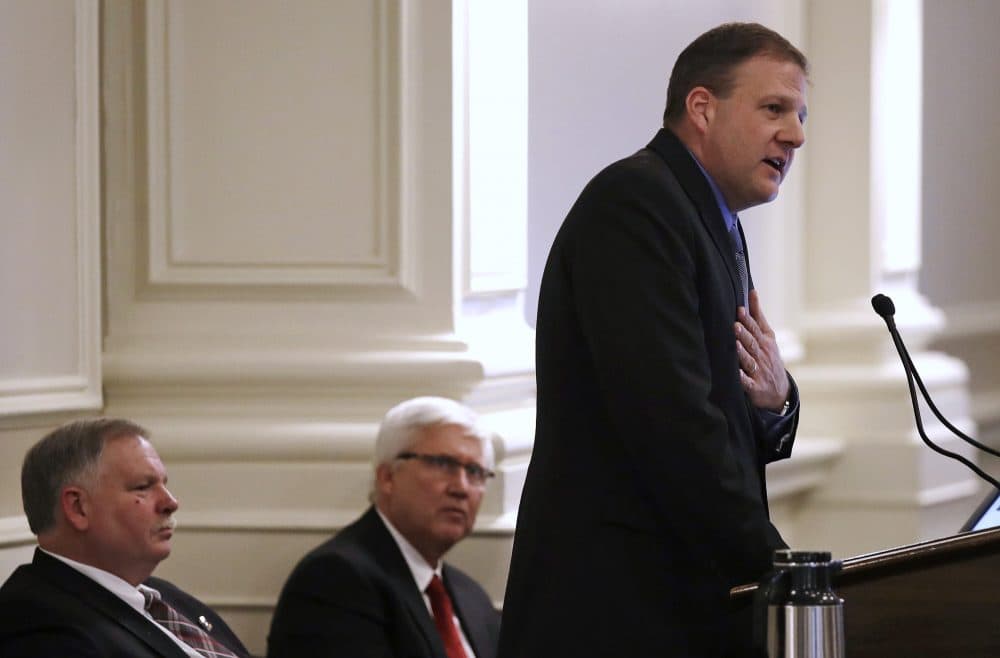Advertisement
After Blaming Lawrence For N.H.'s Opioid Problem, Gov. Sununu Urges Collaboration
Resume
New Hampshire Gov. Chris Sununu said Thursday that he's eager to work with Lawrence Mayor Dan Rivera battling the opioid epidemic.
That's after Sununu blamed Lawrence Wednesday night for much of the opioid problem in his state.
Sununu issued a statement Thursday saying he spoke with Rivera in the afternoon and he believed that Lawrence officials have been doing a good job on the opioid issue. That's much softer than what Sununu said during an address to the Greater Manchester Chamber of Commerce.
"Eighty-five percent of the fentanyl in this state is coming straight out of Lawrence, Massachusetts," Sununu said Wednesday. "Guess what: We're going in. And we're going to get tough on these guys, and I want to scare every dealer that wants to come across that border."
Sununu's statement Thursday also said the opioid problem requires all state, local and federal agencies to work together. Mayor Rivera agreed. He said it's the demand for opioids like heroin and fentanyl that's the real problem, and he said his city already is working on attacking the supply.
"Our No. 1 goal is to make it inhospitable for people to buy and sell drugs in Lawrence," Rivera said. "By the end of the year, we'll have 23 new police officers, we revamped our detective unit, our street narcotics unit. We are doing everything we can within our means."
Rivera also said resources are needed, especially for long term substance use treatment. He says that is something officials are not talking about.
"I have not heard that from anyone, from Massachusetts, New Hampshire, Vermont," Rivera said. "And we're going to have long term treatment for people. That's not there and that's what you need. Not three days and four days and letting the private health sector pay for it. This is a public health emergency."
Massachusetts Gov. Charlie Baker says this is a multifaceted problem. He says over the past 2 years, Massachusetts has increased spending on treatment and recovery by more than $50 million.
As for the Sununu-Rivera flap, Baker says it’s not fair to single out one community for a nationwide problem. Just last weekend at the National Governors Association meeting, Baker said he and other area governors talked about how opioids are getting into New England.
"There are a lot of different paths that illegal drugs travel all over this country and up the eastern seaboard," Baker said. "We all said we need to work together as a community to deal with this."
Massachusetts State Police say the Lawrence area is a source of significant trafficking of heroin and fentanyl but it is not the only source. State police also say they are committed to working with other states and agencies on the opioid epidemic, as they have for the past decade.
Earlier Thursday, federal officials released the annual International Narcotics Control Strategy Report. It says the entire country is facing the worst opioid problem in 60 years. Officials estimate that more than 90 percent of all heroin consumed in the United States comes from Mexico.
This segment aired on March 2, 2017.
